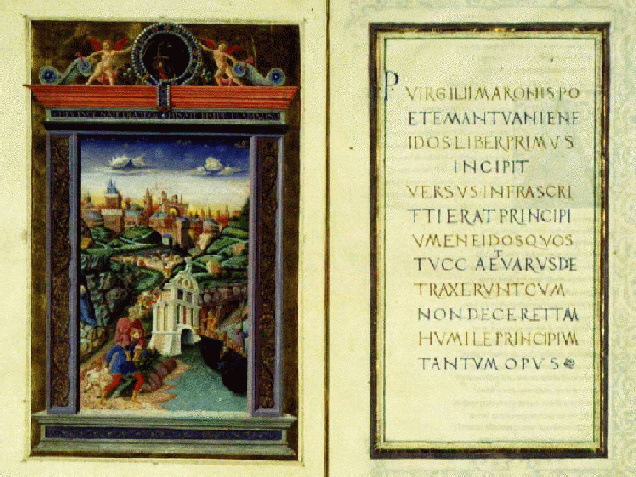* Notes & Translations *

- Sum quod eris, fui quod sis
- "I am what you will be; I was what you are." A reminder inscribed by the
ancient Romans on tombstones.
- Vires acquirit eundo.
- "She acquires strength as she travels on." This describes Fama (Rumor or
Gossip) which increases as it spreads; but the application to URL's works nicely
too. -- Vergil, Aeneid, IV,175
- Homines dum docent discunt.
- "Men learn while they teach." -- Seneca, Epistolae, VII,7
- Omnia praeclara tam difficilia, quam rara sunt.
- "All things excellent are as difficult as they are rare." The ultimate line of
the ultimate proposition of the ultimate book of Spinoza's Ethica.
- Pro captu lectoris habent sua fata libelli.
- "The fate of books depends on the discernment of the reader." -- Terentius Maurus
- Cretenses semper mendaces
- "Cretians are always liars." The phrase is excerpted from Paul's letter to
Titus; the verse begins: "dixit quidam ex illis proprius ipsorum
propheta Cretenses semper mendaces..." [i.e., "one of them a prophet of their own
said Cretians are always liars..."]. Attributed to Epimenides, the passage provides
a classic form of paradoxical self-reference.
- Hoc opus, hic labor est.
- "This is really work, this is really labor." Vergil uses these words
to indicate the difficulty of returning to the overworld after the descent to Avernus.
-- Vergil, Aeneid, VI,129
- Hibernis hiberniores.
- "More Irish than the Irish." Said of certain English settlers in Ireland.
- Heu, vitam perdidi, operose nihil agendo.
- "Alas, I have wasted my life, industriously doing nothing."

